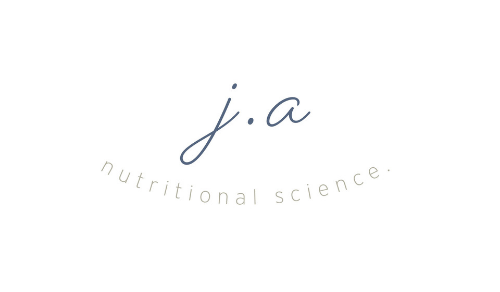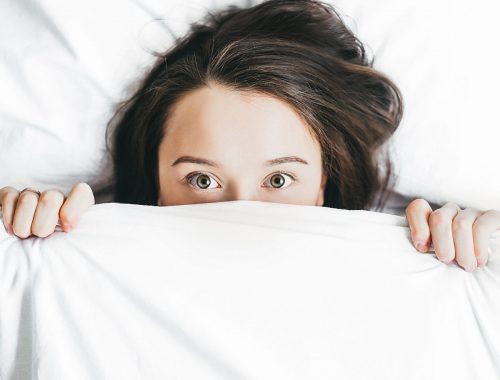
The Power of Morning Sunlight to Set Your Mind and Body
The natural rhythms of light and darkness play a crucial role in regulating our internal body clock, known as the circadian rhythm. Exposure to sunlight, particularly in the morning, is essential for synchronising this biological clock, promoting better sleep, mood, and overall health.
Viewing morning sunlight is, I believe, in the top six pillars of health that support our mental and physical health, and performance.
The Top 6 Pillars of Health:
- Sleep
- Movement
- Nutrition
- Mindset
- Sunlight
- Relationships
Viewing sunlight for 5-10 minutes within the first few hours of waking (even when it’s cloudy) allows for cortisol to release (the ideal time for elevated cortisol) and prepares the body for sleep later that night. Light is the primary external cue that influences our circadian rhythm, signalling the brain to release hormones like cortisol to wake us up and melatonin to help us sleep.
Exposure to morning sunlight helps regulate our “circadian clock” — our 24-hour internal clock that regulates various physiological processes, including sleep-wake cycles, hormone production, and metabolism.
Contacts and eyeglasses are suitable for use while soaking in the morning sun, even if they have UV protection. However, avoid wearing sunglasses or blue light-blocking glasses during this time if you want to experience the full benefits of morning sunlight. Position yourself to face the sun directly.
Remember, never stare at the sun or look at it in any manner that is uncomfortable; instead, simply close your eyes and blink when necessary for eye safety. Note: Absorbing the sun’s rays from behind a windshield or window is ineffective, as these barriers typically filter out essential wavelengths.
Utilising light to Enhance Energy and Concentration
To stay alert and focused during the day, especially in the morning and early afternoon, make sure you have plenty of light. Use bright overhead lights because they help our bodies produce chemicals that keep us motivated and attentive. Also, instead of making your computer screen brighter, try to work in a room with good natural light. If possible, having your desk near a window is great because sunlight tells your brain it’s time to be awake and concentrate.
In the evening, it’s good to make your work area less bright. Cut down on blue light, which can make it hard to sleep. Turn off the main lights and switch to smaller, softer lights. Make your computer screen less bright by installing software like f.lux
Afternoon Sunlight to Improve Your Sleep Patterns
To synchronise your body’s circadian rhythm with the natural day-night cycle, it’s beneficial to spend time outside in the afternoon or early evening. The sun emits yellows and oranges at this time, which can penetrate even cloudy skies. This spectrum of light signals to your brain that the day is ending, preparing your body for sleep later that night.
Avoid Bright Lights at Night
Exposure to UVB rays and blue light can enhance mood, boost energy, control appetite, and trigger dopamine release. However, artificial UVB light from screens during late-night hours (10 p.m. to 4 a.m.) can decrease dopamine and exacerbate feelings of depression and anxiety. Occasional exposure might be tolerable, but frequently using electronic devices or bright overhead lights at night can negatively affect health.
Using Red Light to Keep Cortisol Low at Night
To promote better sleep and immune health, it’s important to keep cortisol levels low at night. Our body produces the sleep-inducing hormone melatonin in the evening, but exposure to bright light can suppress it. To minimise disruption to melatonin levels, it is advisable to avoid bright lights and opt for either no light, dim lights, or use amber or red lights at night, especially after 9 p.m. Inexpensive red light bulbs can be a good option, and should be turned off when you go to bed to improve sleep quality.
For optimal deep sleep, it is important to sleep in a very dark environment, remove alarm clocks with bright light or face them down for sleep (which also helps to minimise ‘clock watching’ in the middle of the night). Exposure to even low levels of light during sleep can harm cardiometabolic health and lead to increased insulin resistance.
Shift Workers
To enhance sleep quality and maintain a healthy circadian rhythm, it’s advised to avoid exposure to bright light during your sleep cycle. Use dark window shades and dim lighting in your sleep time. Consistency is key; keeping the same shift schedule for at least two weeks can help regulate your biological clock. For individuals with young children or those on night shifts, such as first responders, firefighters, police officers, paramedics etc.
I understand you may not have that kind of control over your sleep schedule, this is where you want to avoid bright light exposure when you should be sleeping, perhaps using blue blockers and avoiding watching television or using devices, and using very dim lighting in order to help fall asleep.
Mood and Hormones
Sunlight and Hormones: A study showed that spending about 30 minutes in the sun, wearing clothes that expose the skin, like shorts and t-shirts, can boost testosterone, oestrogen, mood, and sex drive in both men and women. Try to do this for 20 to 30 minutes, at least 2 to 3 times a week.
Mood Enhancement: Sunlight triggers the release of serotonin, a neurotransmitter associated with mood regulation and feelings of well-being. Adequate sunlight exposure in the morning can help alleviate symptoms of seasonal affective disorder (SAD) and boost overall mood.
Balancing Sunlight Exposure and Protection: While morning sunlight is beneficial, it’s essential to strike a balance to avoid excessive exposure and potential sun damage. Use sunscreen if prolonged sun exposure is expected or if you have sensitive skin. Opt for early morning or late afternoon sunlight to minimise UV exposure.
Conclusion:
Setting your circadian rhythm with morning sunlight exposure is a simple yet powerful way to enhance your overall health and well-being. By allowing natural light to regulate your internal clock, you can improve sleep quality, mood, and energy levels. Incorporating outdoor activities and time in the sun can have a profound impact on your circadian rhythm and contribute to a healthier lifestyle.
References:
1. Gooley, J. J., et al. (2011). Exposure to Room Light before Bedtime Suppresses Melatonin Onset and Shortens Melatonin Duration in Humans. Journal of Clinical Endocrinology & Metabolism, 96(3), E463-472.
2. Grandner, M. A., et al. (2021). The Relationship between Sleep and Light Exposure: A Systematic Review and Meta-Analysis. Sleep Medicine Reviews, 56, 101424.
3. Reddy S, Reddy V, Sharma S. Physiology, Circadian Rhythm. [Updated 2023 May 1]. In: StatPearls [Internet]. Treasure Island (FL): StatPearls Publishing; 2024 Jan-. Available from: https://www.ncbi.nlm.nih.gov/books/NBK519507/
4. Holick, M. F. (2007). Vitamin D Deficiency. New England Journal of Medicine, 357(3), 266-281.
5. Reid, K. J., and Santostasi, G. (2014). Timing and Bright Light Exposure Patterns in Night Shift Workers: Effects on Body Weight. Physiology & Behavior, 134, 77-85.






